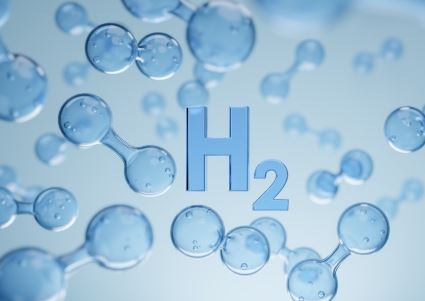Guest article by Volker Wannack & Jakob Amann
After the energy transition in Germany was overslept over the last few years, new momentum has been injected into the debate in recent months. We are now more aware than ever of international dependencies and inadequate security of supply. Extreme weather events and vociferous protests are putting the consequences of climate change at the center of political debates. These challenges are forcing us to develop innovative solutions to successfully manage the energy transition. Hydrogen plays a promising role here. As an energy storage and transport medium that emits no CO2but only produces water and can be produced virtually anywhere by the electrolysis process, hydrogen represents a possible answer to the current burning questions.
Currently, hydrogen is still more of a niche product. But because of the promising prospects, a lot of research and development is being done on it. Unfortunately, what is missing at the moment is a framework that will allow the international hydrogen market to grow in the way we need it to in these times. In addition to the mere handling of trade and delivery processes, it is equally important to have a trustworthy proof of the hydrogen's production conditions - after all, it does us no good if we have produced the "clean" hydrogen with "dirty" coal.
Focus on smart contracts
Here comes the project "Blockchain-based hydrogen market (BBH.2)" into play. The research team, consisting of scientists, representatives of the energy industry and biogas plant operators, is investigating the use of blockchain technology in the context of the European hydrogen market. This novel technology offers the possibility of mapping the production conditions of hydrogen and simultaneously handling trading processes in a fully automated manner. Here, intelligent contracts - so-called "smart contracts" - play a crucial role. They allow automated processing without an intermediary authority.
Currently, there is no standardized verification of the production conditions for hydrogen. In the field of energy supply, certification is carried out via the register of proof of origin (HKNR) of the Federal Environment Agency. This central institution issues the guarantees of origin for green electricity, transfers them and devalues them when the electricity is consumed. However, difficulties arise, especially in international trading processes, because each European country has its own version of the register of guarantees of origin. Moreover, in addition to the verification via the HCNR, the trading processes must be handled by other means and these two processes must then be merged. This is cumbersome, error-prone and expensive. That is why the team at the Blockchain Competence Centers (BCCM) the University Mittweida together with Markus Jungmann and his colleagues from the Exxeta AG, the possibility of using blockchain technology to address these issues.
Interdisciplinary approach
The interdisciplinary team follows the research call of the Federal Ministry of Economy and climate protection and is being funded under the "Hydrogen Technology Offensive" until 2025. During this time, they are working on a prototype for the blockchain-based hydrogen market in cooperation with transport companies, regulatory authorities, energy producers and universities. In addition to open questions in the areas of hydrogen and blockchain technology, regulatory framework conditions in particular are a hurdle to be overcome. This also includes the difficulties in preparing the research application. In a new, rapidly changing technological field, it is difficult to implement dimensionally accurate planning, which is necessary for the approval of research funds, years in advance. I advocate a less rigid, bureaucratic funding environment that makes innovative research projects quick and as straightforward as possible to implement. Markus Jungmann also points out that the challenge in the current market ramp-up is to think along with the digital possibilities and solutions and not just focus on the physical part.
The research team from Saxony has already overcome the first hurdles. But technological development is also progressing in leaps and bounds. A first draft for a blockchain-based solution has already been developed. While this is far from ready for the real world, they are confident that they will be able to present a good solution by the end of the project period in 2025 that has the potential to drive the European energy transition and the spread of green hydrogen.
Authors:
Dr. Volker Wannack is head & coordinator for blockchain applications, especially for the energy industry at the Blockchain Competence Center Mittweida (BCCM), which is part of Mittweida University of Applied Sciences. Jakob Amann is employed as a research assistant.








